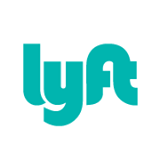The upcoming Council vote in San Antonio over vehicles for hire could have some repercussions.
City Council will meet Thursday to vote on proposed rules that would allow rideshare companies like Lyft and Uber to operate legally in San Antonio. But the new regulations and requirements are so onerous, say rideshare company representatives and advocates, the net result would be to chase the services out of San Antonio.
Rideshare advocates say that more than 250 cities now offer rideshare services, and only a small number of cities with strong taxi unions prohibit the services from operating entirely. Houston and Austin have approved rideshare and Dallas is expected to approve its ordinance this week. Houston’s more demanding rules, which passed earlier this year, are similar to those proposed in San Antonio. Lyft suspended operations in Houston while Uber continues to operate.
Many observers believe the new rules are really meant to exclude rideshare from San Antonio and protect a small but aggressive taxi industry that has made a visible show of force at City Hall over several months of hearings.
Both Lyft and Uber have distributed online petitions and email campaigns that ask for a “no” vote from City Council members. The outcome of the vote is unclear, but at least five council members appear to support the taxi industry.
See here for the background. As noted before, Lyft did exit Houston, but their dispute with Houston’s ordinance was about background checks, where the fight here is about insurance. Uber is operating in Houston and never offered any complaint that I can recall about the revised ordinance. In San Antonio, they not only have a complaint, they put it in writing.
The ride-share firm Uber sent an email Sunday to San Antonio’s mayor and City Council, threatening to shutter operations in the area if new, burdensome regulations are adopted this week.
[…]
“Uber creates a marketplace where these people can use their own car to provide a ride to their neighbors when, where, and how often they want, a strong contrast to taxi, where multiple full-time drivers drive one car 24 hours/7 days a week with high mileage and significant wear and tear with the majority of the profit going to the taxicab company,” wrote Dallas-based Leandre Johns, an Uber general manager. “Simply put, there is virtually no comparison between taxis and TNCs that use smart apps to connect riders looking for transportation to drivers that provide transportation.”
[…]
Several months ago, the City Council created a task force that included representatives from both the taxi industry and the TNCs to craft recommendations on how to amend the city’s vehicles-for-hire ordinance to allow ride-share companies to operate legally — and under regulations — in San Antonio.
The group, overseen by Police Chief William McManus, met several times over the summer to form a series of recommendations. But when McManus presented the recommendations to the council last week, there were several key departures from what the task force had agreed upon.
Those changes, which include how TNC drivers and their vehicles are inspected, don’t protect public safety but rather make it prohibitavly difficult for TNCs to succeed here, Johns and others say.
You can read Uber’s missive to San Antonio City Council here. Council supporters of TNCs are now trying to postpone the vote, partly out of concern that there hasn’t been enough time to discuss the changes from last week, and partly because two Council seats are vacant – District 1’s Diego Bernal recently resigned to run for HD123, and Mayor Ivy Taylor’s District 2 is awaiting the results of a runoff election. In addition, as the Rivard Report notes, the two main contenders for Mayor in 2015 favor allowing the TNCs to operate:
[Mike] Villarreal supports rideshare and said a vote in favor of TNCs from council would signal San Antonio’s support for “innovation, technology, and entrepreneurship … when I think about what I want San Antonio to look like 50 years in the future, it’s a city on the cutting edge of technology.”
When it comes to attracting young professionals, reducing drunk driving, and providing another transportation option in the city, he said, rideshare helps all three.
“We should look at all of our regulations, and if we cannot justify them in the public interest, then we need to have the guts to strike them from the books,” Villarreal said. “We should not be in the business of creating artificial barriers to entry into any given market place. I think in this case I am very concerned that the city is moving forward with an ordinance that does not make us safer – that simply protects the status quo.
“(Traditional cab companies) have already overcome the (regulation cost) hurdle and they don’t want to lower that gate that would allow more competition,” he added.
Fellow mayoral candidate Leticia Van de Putte also supports a set of rules that is more rideshare-friendly.
“Major Texas cities and others across the country have found a way to welcome the services of transportation network companies to meet their city’s growing demands while ensuring the safety of their communities. I have complete confidence that San Antonio will rise to the same challenge,” Van de Putte stated in an emailed response.
San Antonio would be the first Texas city to not allow Uber and Lyft if things proceed as they currently stand. Whether or not that happens, or if that is the intent, we’ll know tomorrow. By the way, Dallas City Council is expected to approve their vehicles for hire revisions today. A pro-TNC op-ed from Rackspace co-founder Graham Weston is here, and Slate has more.


